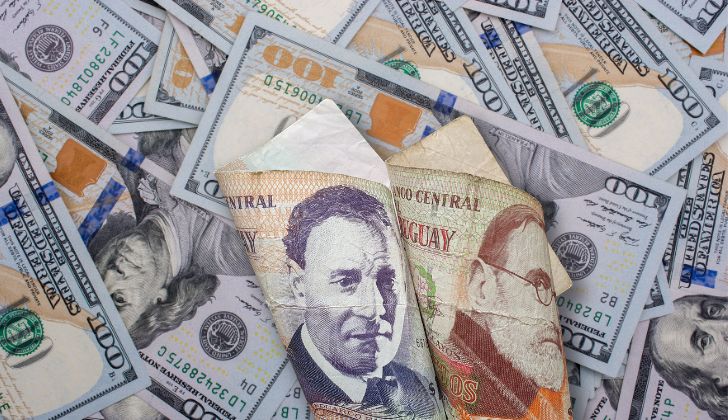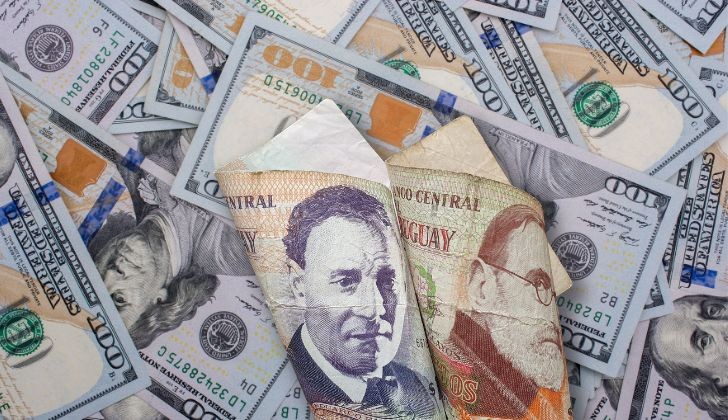
A deep wave of anxiety gripped global financial markets yesterday. Stocks fell in the United States and around the world as investors reacted to worrying signs of a possible slowdown in the US economy.
The drop extended a sell-off that began on Friday after the release of a U.S. jobs report showing the highest level of unemployment in nearly three years, exacerbating fears that the world’s largest economy could be heading for slower growth.
Nikkei 225 plunges: Biggest drop since 1987
On Wall Street, the S&P 500 index posted a 3% drop, marking its worst day since September 2022. In Japan, the Nikkei 225 index plunged 12.4%, its biggest daily drop on record. In the United Kingdom, the FTSE 100 suffered its worst day since July 2023, falling more than 2%.
Several factors contributed to the fall, including concerns that technology stocks had risen too quickly and a stronger yen, which could hurt the outlook for Japanese companies. In the United States, some analysts questioned whether the Federal Reserve had waited too long before cutting interest rates.
“Markets are a bit out of control,” said Andrew Brenner, head of international fixed income at National Alliance Securities. “This is full-blown panic. It’s not real, but it’s painful and could last a few weeks.”
Reactions in global markets
Signs of a slowing U.S. economy sent panic through investors on Monday, turning a selloff into a global rout. In early trading on Monday, the S&P 500 fell more than 4% and the tech-heavy Nasdaq plunged nearly 6%.
Some investors interpreted the sell-off as a sign that the economy was at risk of entering a recession, while others saw it as an unwinding of excessive bets on technology and artificial intelligence stocks. These fluctuations occurred against a backdrop of thin trading volumes typical of summer, which can cause sharp and abrupt swings in prices.
Outlook for Asia, Europe, and the US Fed
In Asia, Europe and the Americas, stock markets plunged, with few sectors spared from the storm. The moves were a sharp setback for major stock markets, which had reached new heights last year, buoyed by optimism about cooling inflation and strong labor markets.
In Japan, the Nikkei 225 index fell 12.4%, hurt by both economic fears and a strengthening yen. It was the biggest one-day drop since the Black Monday crash in October 1987. In Europe, the Pan-European Stoxx index fell around 3%, with declines in all major markets on the continent.
Goldman Sachs, in a note, said it now expects the US Federal Reserve (FED) to cut rates at its next three meetings (September, November and December), a more aggressive timeline than initially anticipated. Goldman analysts raised their forecast for the probability of a US recession in the next 12 months to 25%, from 15% previously.
Strong blow to technology and cryptocurrencies
Technology stocks were particularly hard hit. In Asia, chip giants Samsung Electronics and Taiwan Semiconductor Manufacturing Company each fell 10%.
In Europe, semiconductor manufacturers such as ASML and STMicroelectronics also posted significant declines. In the US, Nvidia and Intel futures fell.
Bitcoin, the largest cryptocurrency, plunged more than 10%, reflecting investor anxiety.
Jordi Basco Carrera, chief investment strategist at Allianz in Munich, said investors were nervous because of the record run of the U.S. stock market, exacerbating general jitters. “On every investor’s mind is the question ‘How long can this last?'”
Jesper Koll, head of financial services firm Monex Group, said the deteriorating U.S. economic outlook reflected the market reaction. “It was a sneeze in New York that caused Japanese pneumonia,” Koll said, noting that a stronger yen would hurt Japanese corporate profits.
Effects in Uruguay
In Uruguay, the stock market is limited, but the financial turbulence was reflected in the value of the dollar, which rose by 0.43% to trade at an average of $40.631. This behavior of the dollar was also observed in Brazil, affecting the local market.
This is how regional and global currencies in Uruguay looked after the global stock market crash (in Uruguayan pesos)
The quotes are those of the Banco República (BROU), as stated in their website.


















